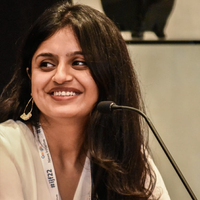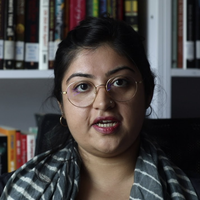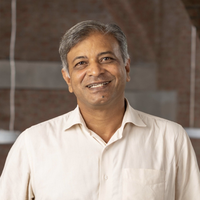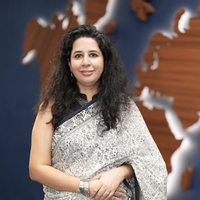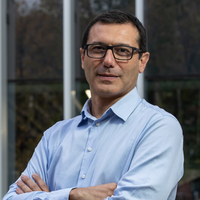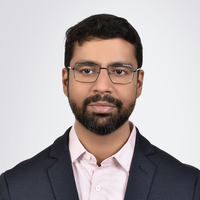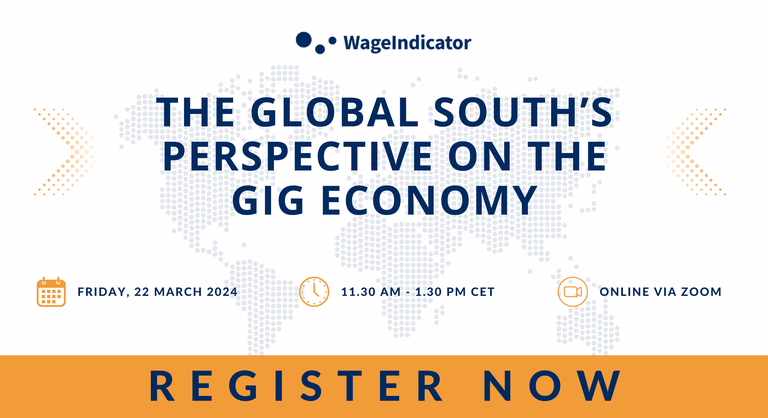
About the Session
For more and more people, online platforms have become a digital gateway to work. This work ranges from highly-skilled to generically-skilled and both online and in-person.
However, conversations on this burgeoning field have been dominated by perspectives from the Global North, creating flawed ‘one-size fits all’ models for labour relations in the platform economy. Nostalgic ideas about a return to classic Fordist labour models, highly developed institutions and a low informal market dominate discourse.
Policymakers and researchers with a focus on these regions often have a blind spot by viewing the situation from a 'Western' perspective. If you take off these glasses, the debate is suddenly very different.Then you see, for example, that there are also many opportunities for workers with unique skills to work for international clients. And there are opportunities for 'bundling' security for workers, as platforms centralise and partly formalise highly fragmented and invisible markets.
Anyone with a little knowledge of the world understands that a truly global picture is complicated and nuanced. And to understand what is really going on it is necessary to zoom more into the specific context of a city, country or continent.
To kick-start a worthy debate on the ‘global’ gig economy, the WageIndicator Foundation in collaboration with FLAME University are organising the event The Global South’s Perspective on the Gig Economy on 22 March. In this webinar, which will be broadcast live from our conference in Pune (India), we will look at the opportunities for workers from a 'Global South' perspective, learn from the context in which this development is taking place here and take a first step towards a truly 'global' debate on the gig economy
Speakers
|
Seminar Host: Martijn Arets |
Martijn is an international expert and thinker in the field of emergence and development of the platform economy. Since 2012 Martijn is traveling the world to talk to entrepreneurs, experts and other stakeholders. Martijn advices corporations, national and local governments and other institutions. He is part of the gig team of the Wageindicator Foundation and the Platform Economy research group at The Hague University of Applied Sciences. Moreover, Martijn is the founder of GigCV: an easy tool for anyone working in or gaining work experience in the gig economy. |
Panel 1: The impact of the gig economy in the global south
|
Moderator: Rachel Rietveld |
R.D. (Rachel) Rietveld LLM is co-director of ArbeidsmarktResearch UvA BV, lecturer and PhD-student at the UvA/TU Delft. Her research focusses on systemisation of open norms in law: how do judges reach their decisions based on open norms and how may Artificial Intelligence play a role in this process. Her daily research and work are at the intersection of law and technology. Therefore, she focusses on access to law, for example by developing expert systems (e.g. www.magontslag.nl) and by translating legal developments and trends into (data-driven) practical outcomes. |
|
Panelist: Varsha Bansal |
Varsha Bansal is an independent journalist, writer and editor based in Bengaluru. She writes at the intersection of Technology, AI and Humans. Her work has appeared in WIRED, TIME, Al Jazeera, Slate, Caravan, Economic Times, Mint and more. She was longlisted for International Journalist of the Year award by One World Media in 2023 for her reportage on gig workers in India. She is a grantee and an inaugural AI Accountability fellow at the Pulitzer Center. Varsha is also an adjunct faculty at the Asian College of Journalism. |
|
Panelist: Aditi Surie |
Aditi Surie looks at the future of work in Indian cities created by technologies of the Fourth Industrial Revolution (4IR). Her research is focused on labour platforms to understand their relationship to city economies, existing labour markets and the experience of work. Her work examines how the platform as a mode of economic organisation impacts various scales and experiences of informality, a hallmark of cities of the global South. Extending this research on informal economies to its impacts on health outcomes, land organisation, and the industrial profile of cities, Surie creates Southern interpretations of the impacts of 4IR technology. |
|
Panelist: Ernesto Noronha |
Ernesto Noronha is Professor of Organizational Behaviour at the Indian Institute of Management Ahmedabad. His expertise lies in the areas of globalization and employment relations; workplace diversity and inclusion; technology and work; informal and precarious work; organizational control; and workplace bullying, emotional abuse and harassment. Professor Noronha holds an international reputation for his work on Indian employment relations against the backdrop of global production networks and informalization and has made significant novel theoretical and substantive contributions, which are widely cited. He is well-recognized for his engagement with post-positivist and visual methodologies. |
Session 2: Policies for a stronger Gig Economy
|
Moderator: Varsha Bansal |
Varsha Bansal is an independent journalist, writer and editor based in Bengaluru. She writes at the intersection of Technology, AI and Humans. Her work has appeared in WIRED, TIME, Al Jazeera, Slate, Caravan, Economic Times, Mint and more. She was longlisted for International Journalist of the Year award by One World Media in 2023 for her reportage on gig workers in India. She is a grantee and an inaugural AI Accountability fellow at the Pulitzer Center. Varsha is also an adjunct faculty at the Asian College of Journalism. |
|
Panelist: Bhavya Sharma |
Bhavya Sharma is the Director of Communications and ESG at Urban Company. A communications strategist with close to 15 years of experience, spread across B2B and B2C, ranging from EY to PolicyBazaar Group and Urban Company. In her current 6+ year stint with Urban Company, she has been instrumental in setting up the Communications and ESG functions at the organisation. As part of the ESG mandate, she is closely involved in partner enablement initiatives, ranging from improved earnings and security security benefits to training & skilling and wealth creation. |
|
Panelist: Albert Canigueral |
Albert Cañigueral, a multimedia engineer, created the blog ConsumoColaborativo in 2011, and since then he has been considered a reference person in the platform economy in the Spanish language. Researcher, consultant and speaker with a critical stance around technology. Author of “Work is no longer what it used to be” (Penguin Random House, 2020), “WorkerTech: How technology can improve emerging jobs in Latin America and the Caribbean” (InterAmerican Development Bank, 2021) and co-director of the documentary “City in Beta: today's work and the cities of tomorrow” (Createl, 2022). |
|
Panelist: Apoorv Kulkarni |
Apoorv Kulkarni Heads Research at the OMI Foundation (OMI), a policy research and social innovation Think Tank. He is focused towards making India’s mobility ecosystem sustainable and Universally Accessible. Under his leadership, OMI Foundation’s research on sustainable urban mobility and livelihoods has received national recognition. Recently, the Hon’ble President of India, felicitated Mr. Kulkarni with the National Award to recognise him for the impact created through his work. Apoorv has a range of experiences working across three continents in policy, consulting and business roles. He has a Master’s in Business Administration from the Stanford Graduate School of Business where he was a Stanford Reliance Dhirubhai Fellow. He is also a Chartered Accountant by training. |



